History
“What Have the Romans Ever Done For Us?” A Discussion of Helen Dale’s Kingdom of the Wicked
Are there any reasons for thinking that the Romans could have had an industrial revolution?
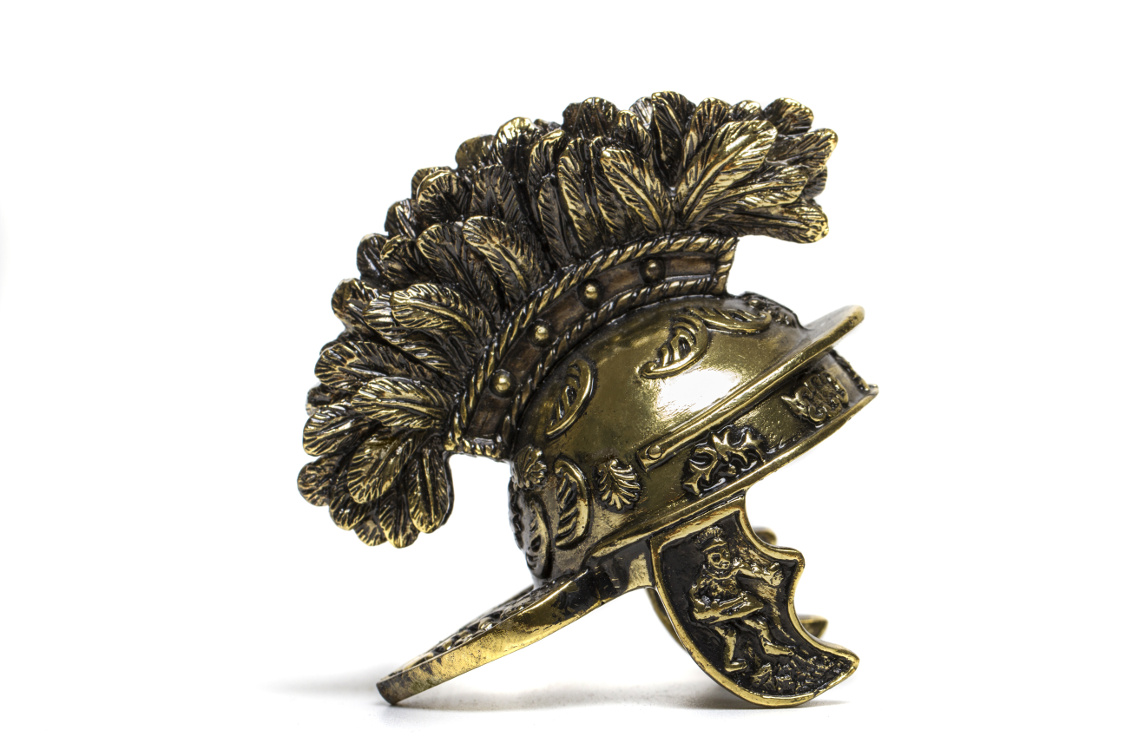
It’s 31 AD or 784 AUC (ab urbe condita) in the Roman calendar. Jerusalem is packed with visitors for the Passover, and Pontius Pilate returns home from the office with a thick dossier on the recent riot at the Temple, caused by Yeshua Ben Yusuf and his rowdy followers. He greets his wife (hi honey), pats the dog, welcomes his young daughter’s handsome lover, has a bath, turns on the TV, and orders pizza for dinner, home delivered by a Greek boy on a motor-bike. It’s the Easter story, but not as told in the St Mathew Passion: the Rome of Kingdom of the Wicked has experienced an industrial, electronic and medical revolution and, with all our domestic comforts, sophisticated weaponry, computer equipment and wonder drugs, it is in many respects indistinguishable from the world of the 21st Century.
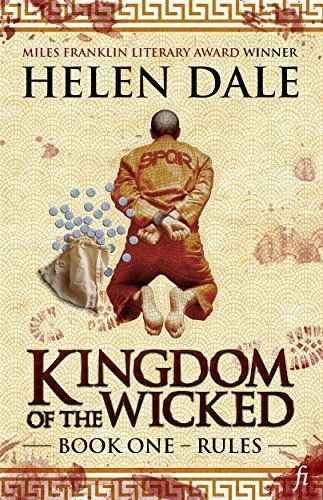
The plausibility of this scenario is less important than the creative use that Helen Dale makes of it, but let us consider the case that she puts forward. Are there any reasons for thinking that the Romans could have had an industrial revolution? They had sufficient economic prosperity and a substantial surplus of production over consumption, much of which, in the real world, was wasted in conspicuous display (triumphs, palaces, festivals, etc). But supposing they had invested this wealth more thoughtfully, three major positive factors are mentioned in the novel.
First of all, human intellectual capital: in this alternative universe, Archimedes, the greatest scientist and inventor of antiquity, was not killed at the siege of Syracuse, but recruited by the Romans and set to work on new projects.
Second, slavery has been abolished. This is a vital concomitant of industrialisation because the existence of abundant cheap labour, based on a steady supply of slaves captured during the conquest of new territories, was fundamental to the ancient world’s lack of interest in developing labour-saving technologies, and a similar role was played by serfdom in Mediaeval times. As Aristotle acknowledged, as Daniel and Eliza appreciated in The System of the World, and Dale herself points out in an afterword, “Chattel slavery undermines incentives to develop labour-saving devices because human labour power never loses its comparative advantage.” Without slaves, people had to devise machines.
Third, acceptance of Greek science but rejection of Greek philosophy. This point is only hinted at in a brief aside, but since it may be the most important factor of all it warrants a bit of a digression. The Greeks had made significant progress towards a scientific world-view, particularly the Ionian cosmologists (Thales, Anaximander), followed by Democritus, Epicurus and the Atomists, and then the Sophists, who added a strong dose of pragmatic, human-centred liberalism. These trends were derailed by Plato, who despised practical knowledge and the mechanical arts, and envisaged a world in which all the work would be done by slaves, leaving philosophers like him with the leisure to speculate on the nature of Goodness and Justice in the abstract. Where the pre-Socratic philosophers had sought entirely naturalistic explanations for the universe and its phenomena, and made no mention of the gods, Plato made the gods (and increasingly a single God) central to his philosophy, and eventually developed a conception of the universe as the creation of a beneficent, all-powerful divine architect – an idea eagerly taken up by the Christians. There is a dialogue by the conservative aristocrat Xenophon in which Socrates is reported as giving an exposition of such intelligent design that could have come from the mouth of a 17th century natural theologian.
Plato’s student Aristotle based his picture of the universe (perfectly circular orbits because the heavenly bodies were created by God, and God is perfect), and on top of that argued in his Politics that slavery was so natural that it was regrettable that any free workers and craftsmen should exist. In his biological and other scientific studies, he made purpose central to his accounts, thus establishing a teleology that hindered the achievement of genuinely scientific (value-free) explanations of natural phenomena. As the army medic Saleh complains, Aristotle was a bad scientist because he did not perform dissections (KW, 300).
The Romans would also have had access to the vast riches of the great library of Alexandria, stocked with thousands of (mainly Greek) works on mathematics, astronomy, geometry, geography, history, literature and philosophy, including the writings of the Atomists and the Sophists. The Atomists were radical materialists who held that the gods (if they existed at all) played no part in the workings of the
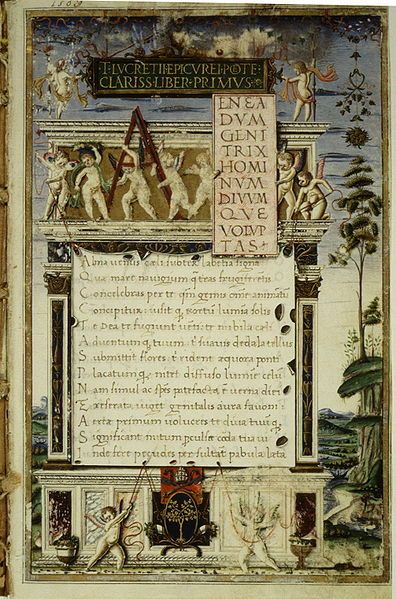
universe or in human affairs. In place of divine creation they proposed that the universe had always existed, was infinite, and consisted of atoms (various combinations of which made up everything from the planets to ants) and a void or vacuum (in which the atoms swarmed and circulated). In the real world the works of the Atomists were lost (or deliberately destroyed), but much of Epicurus’ book On Nature was cast into verse by the Roman poet Lucretius in the first century BC. The chance survival of a single manuscript copy of this work, De Rerum Natura, and its discovery in the late 15th Century, at the height of the Renaissance, is now believed to have played a significant part in igniting the scientific revolution that followed.
The Sophists have a bad reputation as cynical smartarses even to this day, largely because their own works have not survived, and nearly everything we know about them comes from the pen of their principal opponent – yes, Plato again. Perhaps his most serious distortion relates to a key phrase in a book by Protagoras, the most prominent of the group: “Man is the measure of all things.” Plato insisted that this implied an extreme moral relativism, even the proposition that might is right, and thus that the Sophists were amoral cynics who would make any argument if they were paid enough. Without the book in which the phrase appeared it is difficult to know exactly what Protagoras meant, but on the face of it the expression seems rather to encapsulate the Sophists’ contention that social arrangements, including morals and customs, were matters of human contrivance and convention; and hence that affairs should be arranged with human welfare in mind. It thus seems to me that the principle suggests a human-centred utilitarianism, a philosophy that did not re-emerge until the early nineteenth century, but which is now probably the only political philosophy capable of coping with a world that lacks any universally agreed source of moral rules and duties. This sort of thing was of course anathema to Plato, who held, on the contrary, that morals came direct from God, but could be apprehended only by people (such as himself) who had undergone a rigorous course of philosophic introspection.
This tendency to twist the concrete into the abstract is entirely typical of Platonic philosophy. In a curious passage in the Phaedo Plato makes Socrates admit that he was interested in natural science when he was young, and eagerly read the works of the sceptic Anaxogoras, hoping to understand the workings of the universe and answer questions such as whether the earth was round or flat. But he lost interest when Anaxogoras failed to pronounce on whether these facts were good or bad: “I assumed he would … explain in detail the reason why it had to be [round or flat] with reference to what’s better – that is, that it was better that it should be like this” (Phaedo 98a). When Anaxogoras failed to make such a value pronouncement, Socrates concluded that the way to true knowledge lay not through the senses at all, but by pure reason – the light of the soul. This retreat into mysticism was later celebrated as Socrates bringing philosophy down to earth.
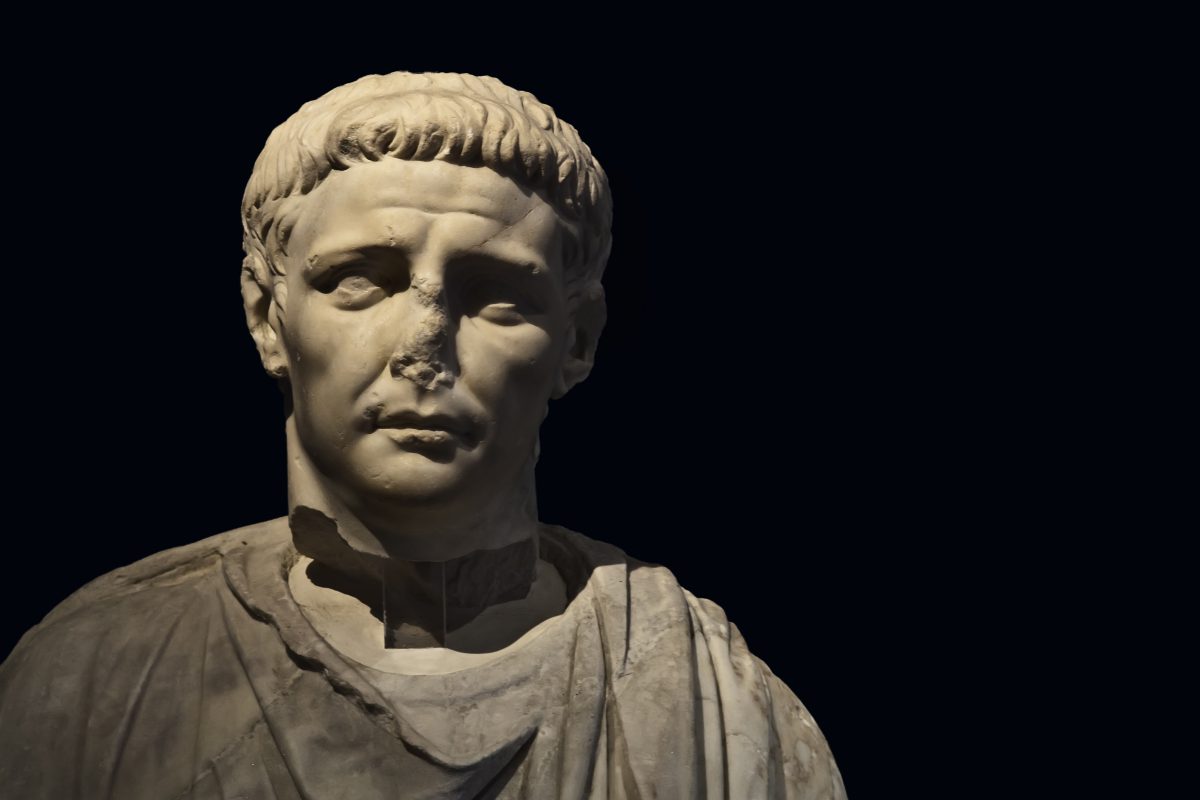
The Romans, both of history and of Kingdom of the Wicked, had no use for such an abstract concept of Goodness or Justice. They regarded philosophy as “a Greek affectation. The people they listen to are lawyers, generals, engineers and economists” (KW 161). What interested them were practical projects that would have beneficial effects on the daily lives of real people: clean water, public baths and a drainage system for Jerusalem; railways; electricity; secure public order, guaranteed by the rule of law, before which all citizens were equal, so that people could go about their affairs without fear of assault or robbery; security of property and contract underwritten by an impartial system of justice; a phonetic alphabet with clear rules of grammar. As even High Priest Caiaphas has to acknowledge, the Romans had brought “a beautiful set of numbers. Low crime rates, low infant mortality, efficient markets, good public health and high rates of literacy for both men and women. Most other people have not yet worked out how to achieve these things by themselves” (KW 160). Such benefits, along with the opportunity to engage in empire-wide trade, join the imperial army and eventually gain Roman citizenship, had secured the loyalty of peoples throughout the Mediterranean, North Africa and Europe conquered by Roman arms – but not the Judeans, who rejected these values and grumbled along with the character in Monty Python’s Life of Brian, “What have the Romans ever done for us?”
So, with Greek science and without Greek philosophy, an industrial revolution is conceivable. Less plausible is the medical revolution that has also taken place. In Dale’s account the Romans have fully-equipped modern hospitals, and army medics carry a full array of emergency supplies, from plasma to antibiotics. In the real world, however, it took quite a while for the scientific revolution to filter through into medical practice; and it was not until some time after the Industrial Revolution that the cause of most diseases (microorganisms) was understood. It took even longer before researchers developed effective cures and preventives (antibiotics and vaccines): it was only in the 1940s that penicillin was discovered, and not until the 1950s and 60s that it, along with other antibiotics and vaccines against killers such as diphtheria, polio, tuberculosis and smallpox, became widely available. As David Wootton points out in Bad Medicine, it was really not until the early twentieth century that there was any likelihood that a visit to the doctor would do you more good than harm. The dominant authority in ancient Roman medicine was Galen, whose prestige was so great that his erroneous anatomy and his humoural theory of disease was still being taught in medical schools and used to diagnose and treat people until well into the nineteenth century. (It was especially useful in explaining how masturbation could undermine male health and provoke disease.) If the Romans in Dale’s alternative universe were able to overthrow Galen’s authority and develop the sort of scientific, evidence-based system of medicine that we in the 21st Century take for granted, they were making very rapid progress indeed – in fact, improbably so.
But it hardly matters. The Rome of Kingdom of the Wicked is really the modern West, beset as we are by religious fanatics, terrorists and other reactionaries who cannot see the virtues of modernity – a free, stable, prosperous, pluralist society – who are often violent and not amenable to argument or reason. Alternatively, it might be seen as the story of what happens when a ruthlessly rational society seeks to introduce modernity to a culture that is equally ardent in its determination to cling to tradition. “What have the Romans ever done for us?” The Judeans are poor, undernourished, dirty and ignorant, obsessed with their religious festivals, ritual purity and their ancient ways of doing things. They do not appreciate the sewerage system built for them, but attack the workers and cause many deaths before the project is finished. Even then they continue to throw their slops out the window – a habit stopped only when the authorities subject the offenders to public floggings.
The Judeans are particularly outraged by the Romans’ relaxed, libertarian attitudes to sex: the freedom given to women to take lovers and run their own businesses; their enthusiastic indulgence in Greek vice (male/male sex); the celebration of forms of prostitution as a religious rite under the aegis of various female deities; nudity in the public baths; and their tolerance of abortion. Caiaphas is so horrified to discover that the stem cells used to regenerate the mangled legs of a soldier blown up by a terrorist bomb came from an aborted foetus that he determines to make contact with the Zealots, and suggests to them that blowing up the abortion clinic would be a better way to win the support of Judeans than honour killings and random attacks on Jewish collaborators. Thus inspired and financed, Yehuda Iscariot launches a series of attacks on the clinic, resulting in the death of many staff and clients.
With plot and setting features such as these Kingdom of the Wicked is likely to offend quite a few people, notably Christians for “appropriating” the story of the crucifixion, though Jesus himself is portrayed as more peaceable than many of his followers and is shown as trying to stop the “honour killings” of women who form relationships with Roman men. Modern Jews are likely to be offended because the portrayal of first century Jewish life is far from attractive. Dale has read widely in the relevant literature, however, and clearly understands a basic fact about the Temple at Jerusalem that many accounts gloss over: it was basically an abattoir. Jewish worship at that time centred on animal sacrifice, and the great courtyard was the place where goats and sheep were herded in to be ritually slaughtered. Doves were also available for women needing to purify themselves after childbirth or menstruation. Animal sacrifice was then as much a “non-negotiable” element of Jewish religious practice as circumcision of baby boys is said to be in our own day.
The Temple was also a business centre, with bankers, money changers and traders selling food and devotional objects. At a busy time, such as Passover, it would have been a scene of indescribable bustle, as thousands of people brought in their sacrificial animals, slipping on pools of blood and piles of manure; and a cacophonous din arising from the bleating of the terrified sheep and the cries of the traders. You can well imagine the chaos that would have resulted when Jesus and his band of followers strode in, assaulted the money changers and overturned the various stalls, an event recorded in all four gospels that gave Dale the inspiration for the novel. As she rightly points out, anybody doing this sort of thing today would certainly be arrested as a rioter, and very probably (if a political motive was suspected) charged with terrorism offences.
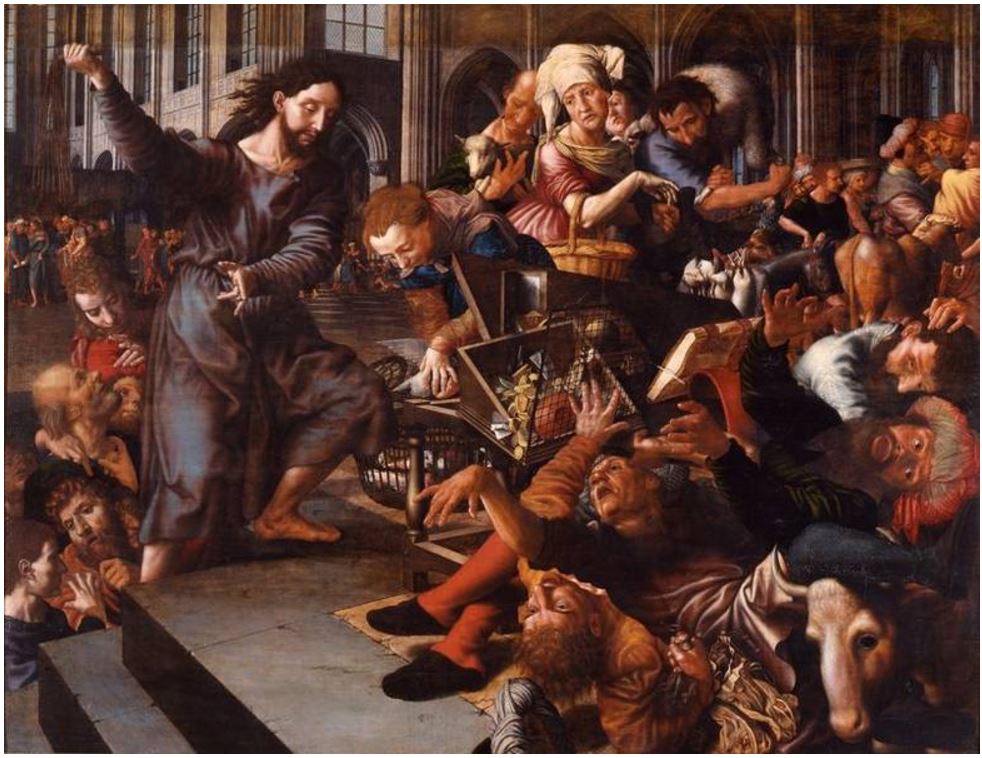
But if the squalor and violence of Judean life is exaggerated, this is partly because it must serve another function: to represent the Middle East as it is today. In both places, real and imagined, there are daily acts of violence, from children throwing rocks at Roman armoured vehicles and schools to armed assaults on military posts. The novel opens with Yehuda instructing the young Saul on how to plant and detonate a bomb on the Jerusalem-Jericho road. The plot hinges on the identification of a Zealot plan for a series of co-ordinated terrorist attacks on symbolic Roman buildings, and the foiling of most of them by a combination of smart intelligence gathering and merciless application of armed force. (And it is worth noting that, from a dramatic point of view, the description of the terrorist incident and the response of the authorities is up there with the very best writing in the suspense-thriller genre.)
The passages involving the Zealots probably owe less to historical sources such as Josephus and more to contemporary reports of the Islamic State, the Taliban and Islamist terrorism more generally. Central to the anger of both groups is rejection of Roman or Western decadence and “filth”, particularly with reference to sexual matters and the control of women, and insistence on an austere puritanism that rejects most earthly pleasures as sinful and depraved. As Pilate’s wife comments, “They hate everything that’s good and enjoyable. … Not just obvious things like wine and sex either – they seem to hate art, theatre, music, good food, trade. … They’ve even got an issue with dogs” (KW 204). As mentioned, much of the Zealot resentment at the Romans arises from the opportunities they provided for local women to escape from the patriarchal rule of their family and find freer and more fulfilling lives as partners of Romans. It was the decision of his sister to follow this course that first led Yehuda to take up arms and become a committed rebel against Roman rule. Many Islamic states today follow similar policies with respect to women and family life, and reject modernity precisely because it offers so much greater scope for women to lead independent lives. There is a similar parallel in how the Judeans and many contemporary Muslims respond (with rioting) to “provocative” images.
In sharp contrast with these negative assessments, the virtues of Roman life are somewhat exaggerated. As portrayed in Kingdom of the Wicked, the Roman Empire embodies all the best features of nineteenth century British liberalism, with a healthy dose of libertarianism thrown in. It is a fully multicultural society with no racial or sexual discrimination in access to services, education, employment or recruitment into the army. The local legion (X Fretensis) includes a tall, ginger-haired Celt, blond Germans and Greeks, an athletic Black from Nubia, and various dark-haired others from the Middle East, Europe and North Africa. Roman prosperity is based on liberal economic policies, including free trade, minimal regulation of markets, with a view to promoting competition, encouragement of entrepreneurship and security of property guaranteed by the rule of law. The strength and fairness of the legal system is especially emphasised, and vividly dramatised in the clash between Aquilifer Gretorex (the Celt with a British sense of fair play and respect for the rules) and an elite Roman who wants to cut corners and employ illegal interrogation techniques. The value system of the novel clearly endorses the observance of the law in all circumstances, no matter how pressing necessity seems to be.
The Roman world depicted here is not, however, a notably egalitarian or democratic society – though the emperor is not the tyrant that he was historically, and there is a system of representative government (the Senate) with a property-based franchise. There is equal opportunity, but success depends on talent and effort, and advancement is by merit, not quotas. Many of the most admirable characters come from poor backgrounds and, to get a good education, either worked part-time (as baristas, rent boys, etc) or joined the army. There are many features of this world that would strike the modern reader as paradoxical or disturbing: recreational drugs readily available, but people liable to be fined for littering; wide sexual freedom, but insistence on correct grammar and table manners; wild, drunken partying at appropriate times, but a serious attitude to work – the Romans regard the Jews as lazy because they take a day of rest one day a week. Even more controversially, all citizens (but only citizens) are trained in the use of firearms and permitted to keep a gun. While there is complete religious freedom, no religious beliefs or practices are privileged or protected by the state, and the Romans are not prepared to tolerate barbaric or destructive customs, such as the ritual sacrifice of young girls as was traditional in Carthage. As Gretorex’s lover Mirella explains (in a paragraph inspired by Charles Napier’s report of his suppression of widow burning in nineteenth century India), following their conquest of the Carthaginians:
The Romans forbade this tradition, and the city fathers complained that the new law was destroying their culture and customs. The response of the Roman Governor at the time was to reply that the Romans, too, had customs and traditions. Their custom in this case was that every time the city fathers sacrificed a girl to Tanit, the Romans would build a gallows beside the Temple and hang the city father responsible by the neck until he died. Soon, no more girls were sacrificed to Tanit, and so I am before you today. (KW 108)
Although they are disgusted and horrified by the Jewish custom of circumcising baby boys, the Romans do not try to suppress the practice – though they resolutely refuse to undergo circumcision themselves (as technically demanded by Jewish religious law) when marrying Jewish women. There is a large measure of gender and sexual equality throughout the Empire, though a limited amount of segregation in certain occupations: men are kept out of matters relating to childbirth, while women do not seem to be eligible for fighting roles in the armed forces, except perhaps the airforce.
There are, in fact, many indications that the Rome presented in Kingdom of the Wicked is not meant to be the Rome of history as it really was, but a projection of an ideal society based on libertarian principles. Hostile references to moral hazard (“When you help people too much they stop helping themselves.”); allusions to the danger of blasphemy laws; disapproval of private prisons (law and order is a guardian function, properly carried out by the state); statements that it was markets (rather than plunder) that made Rome rich – all these and many other asides show that fiction has not lost its capacity to stimulate political reflection while entertaining us. Although it will be found controversial, the image of a well-ordered libertarian society presented here is a surprisingly attractive one, deserving serious thought and discussion.
But in the end Kingdom of the Wicked is a novel; although it speaks to the issues of our time, it is to be read and appreciated primarily as a work of fiction. It is a heady brew, but if you can cope with the suspense of an action thriller by Tom Clancy, the satire of The Life of Brian, the raunchiness of The Satyricon of Petronius, and the irreverence of Christopher Hitchens, you may find it appropriate reading for the Easter break.
Helen Dale’s Kingdom of the Wicked: Book One – Rules (Sydney: Ligature Publishing, 2017) is available for sale now from Amazon.






